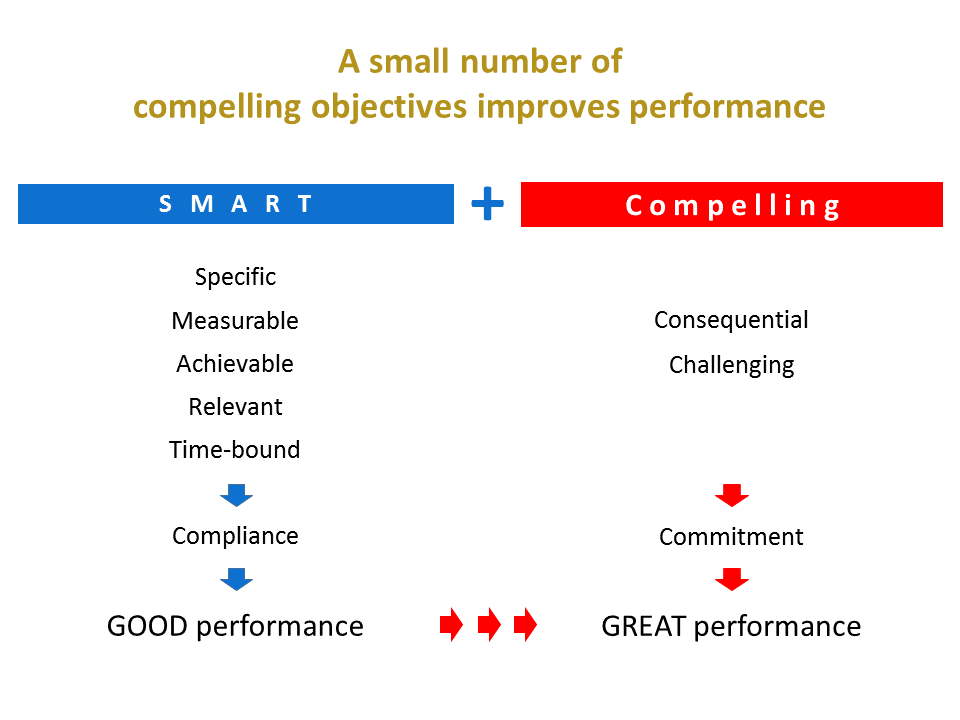The acronym SMART has been used for over 30 years to remind people of best practice for setting objectives - they should be specific, measurable, achievable, relevant, and time-specific. Specific ambitious targets definitely improve performance – there’s a wealth of evidence behind this1.
More recent research has also shown they need to be ‘challenging and meaningful’ to really fire up you or the team. The term ‘compelling’ has been used to capture this ‘challenging and meaningful’ characteristic. Objectives should be so compelling that people will want to perform to their very best to achieve them.

Use the following exercise to get real focus on your priorities.
You can use this exercise with your team, too. Setting objectives with your team can be a slightly more complex - check out our briefing on setting team goals, and the associated team exercise - but the SMART, compelling objectives mantra is still relevant to the team.
- Take a step back from the day-to-day detail of your work and reflect on the 3 – 5 aspects of your work that you think add most value to the organisation.
- Write an objective for each important area of work. Start the sentence with an active verb: ‘To recruit…’ ‘To make ..’ and so on. Keep the sentence as brief as possible, making sure it meets the SMART and compelling criteria.
1. See, for example Turkay, S. (2014). Setting Goals: Who, Why, How?. at https://www.academia.edu/10363659/Setting_goals_who_why_how
